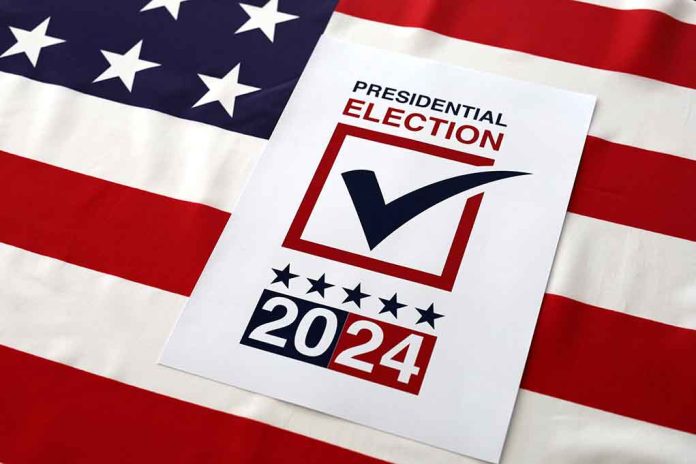
Christian voter turnout is anticipated to pose a strategic challenge for Republicans in the 2024 presidential election as record numbers consider abstaining from the polls.
At a Glance
- Christian voters are a significant demographic in the U.S. elections.
- Practicing Christians generally support conservative candidates.
- White evangelicals remain a crucial Republican voting bloc despite demographic changes.
- Younger evangelicals show differing political trends compared to older generations.
The Importance of Christian Voters
Christian voters have historically been a reliable base for conservative candidates. Research indicates that two-thirds of Americans identify as Christian, with 55% being “practicing Christians.” This group traditionally votes more frequently and often aligns with conservative positions. A drop in turnout among born-again believers and frequent churchgoers could substantially impact Republican chances, posing a strategic hurdle ahead of 2024.
The role of Christianity in past elections, notably the 2016 presidential election, showcased its influence on voting behavior, highlighting the divide amongst Christians concerning candidate preferences. As younger generations, including white evangelicals, lean more progressive on social issues, the trajectory of Christian voter impact remains uncertain.
White Evangelicals: A Declining But Vital Bloc
Despite a decline in population share, white evangelicals are a significant voting bloc, representing about 30% of Republican identifiers. Historically, their political alignment with the Republican Party began as a reaction against the Democratic Party’s civil rights policies and persisted through the rise of religious conservatism in the latter part of the 20th century.
“No president has ever fought for Christians as hard as I have.” – Donald Trump
Trump’s strong appeal to white evangelicals is more about shared cultural battles rather than shared faith, demonstrating his continuing dominance on the religious right. However, as the demographic composition shifts and religiously unaffiliated Americans rise, the Republican strategy must adapt to retain and galvanize this crucial voter segment.
Adapting to Demographic Shifts
Republican engagement strategies with Christian communities require reevaluation as the electoral landscape evolves. The significance of the evangelical vote in Republican primaries, particularly in pivotal states like Iowa, complicates the GOP’s position on key issues such as abortion, indicating a need for tactical adjustments.
With the backdrop of potential Christian nationalism influences and polarized media, the Republican Party’s strategy in 2024 will need to focus on mobilizing the reliable Christian base while appealing to younger, more socially progressive Christian voters. This intricate balance is key to navigating the expected complexities of the upcoming election.
Sources
1. How younger voters will impact elections: What is happening to the white evangelical vote?
2. Christian Voters Will Play an Outsized Role in the US Election









